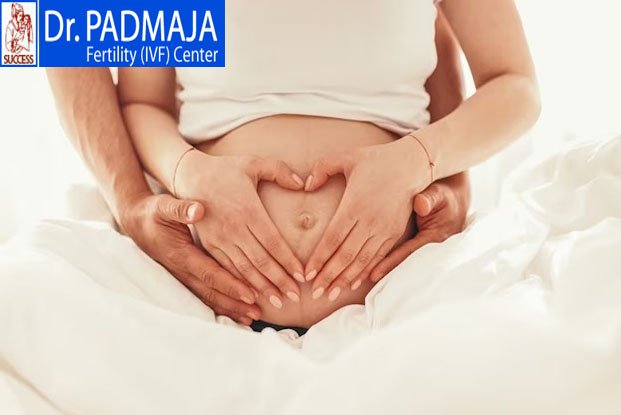Ectopic pregnancy is a potentially serious condition in which a fertilized egg implants and grows outside the uterus, most commonly in the fallopian tubes.
Here’s an overview of the symptoms, causes, and treatment options for ectopic pregnancy:
Symptoms:
- Abdominal pain:
- Persistent and often severe abdominal pain, typically on one side of the abdomen.
- Vaginal bleeding:
- Light to heavy vaginal bleeding, which may be different from a normal menstrual period.
- Shoulder pain:
- Shoulder pain can occur due to irritation of the diaphragm caused by bleeding from the ectopic pregnancy.
- Weakness and dizziness:
- These symptoms may be the result of internal bleeding, leading to low blood pressure.
- Gastrointestinal symptoms:
- Nausea, vomiting, diarrhea, and pain during bowel movements may be present.
Causes:
Ectopic pregnancy occurs when the fertilized egg fails to reach and implant in the uterus. The exact causes are not always known, but the following factors may increase the risk:
Fallopian tube issues:
Scar tissue, inflammation, or damage to the fallopian tubes can hinder the movement of the fertilized egg, leading to ectopic implantation.
Previous ectopic pregnancy:
Women who have had an ectopic pregnancy in the past are at a higher risk of experiencing another.
Pelvic inflammatory disease (PID):
Infections such as chlamydia or gonorrhea can cause inflammation and scarring in the fallopian tubes, increasing the likelihood of ectopic pregnancy.
Reproductive system abnormalities:
Certain conditions, such as a malformed uterus or birth defects affecting the fallopian tubes, can make ectopic pregnancy more likely.
- Assisted reproductive techniques: In rare cases, procedures like IVF can result in ectopic pregnancy if the fertilized egg implants outside the uterus.
Treatment: Ectopic pregnancy is a medical emergency that requires prompt intervention to prevent complications. The treatment options include:
Medications:
If the ectopic pregnancy is diagnosed early and there is no rupture or significant bleeding, a medication called methotrexate may be administered. Methotrexate stops the growth of the embryo, allowing the body to absorb it naturally over time.
Surgery:
If the ectopic pregnancy has caused severe symptoms, rupture, or significant bleeding, surgical intervention is necessary. The most common surgical procedure is laparoscopic surgery, where a small incision is made to remove the ectopic pregnancy while preserving the fallopian tube.
In some cases, if the fallopian tube has been severely damaged or ruptured, it may need to be removed through a procedure called salpingectomy. In other instances, if the ectopic pregnancy is located in a specific area of the fallopian tube, a procedure called salpingostomy may be performed to remove the pregnancy while preserving the tube.
After treatment for an ectopic pregnancy, it is essential to have follow-up care, including monitoring of hormone levels and regular check-ups to ensure complete resolution and to address any emotional or psychological support needs.
If you suspect an ectopic pregnancy or experience any symptoms, it’s crucial to seek immediate medical attention as early detection and treatment can help prevent complications and preserve future fertility.
IVF (In Vitro Fertilization) treatment in India is widely available and has gained popularity as a viable option for couples facing infertility. India is known for its advanced medical facilities, skilled fertility specialists, and relatively lower treatment costs compared to many other countries.
Here are some key points regarding IVF treatment in India:
- Fertility clinics:
India has numerous fertility clinics and centers across major cities, offering a range of assisted reproductive technologies, including IVF.
These clinics are equipped with state-of-the-art facilities and employ experienced fertility specialists, reproductive endocrinologists, embryologists, and support staff.
- Affordability:
IVF treatment in India is often more affordable compared to many Western countries.
The cost can vary depending on factors such as the location, reputation of the clinic, expertise of the medical staff, and additional treatments or services required.
However, it is important to note that while costs in India may be lower, the quality of care and success rates can still be comparable to international standards.
Expertise and success rates:
Indian fertility specialists are renowned for their expertise and success in performing IVF procedures.
Many clinics in India boast high success rates, although success rates can vary among individual clinics and depend on various factors, including the woman’s age, overall health, underlying fertility issues, and the quality of the embryos.
Legal and ethical considerations:
India has established legal frameworks and ethical guidelines governing assisted reproductive technologies, including IVF. These regulations aim to ensure the well-being and rights of all parties involved, including the intended parents, donors, and children born through IVF.
- Advanced treatments and techniques:
- Indian fertility clinics often offer advanced treatments and techniques in addition to standard IVF. These may include intracytoplasmic sperm injection (ICSI), preimplantation genetic testing (PGT), blastocyst culture, and frozen embryo transfer (FET), among others. These options can enhance the chances of successful pregnancy and improve outcomes for couples.
- Medical tourism:
- India is a popular destination for medical tourism, including infertility treatments. Many couples from around the world choose to travel to India for IVF treatment due to the combination of quality healthcare, affordability, and the opportunity to explore the country.
It’s important to research and choose a reputable fertility clinic with experienced professionals when considering low cost IVF treatment in India. Consultation with a fertility specialist will provide personalized information and guidance based on your specific circumstances, allowing you to make informed decisions about your fertility journey.
Loan for IVF treatment in India is also available through banks and financial institutions.
IVF treatment India cost is anywhere between 50,000 Rs to 3,00,000 Rs and there are many reputed clinics for IVF treatment India.
The financial district of India, the city of Mumbai is also having many clinics for IVF treatment in Mumbai India.

